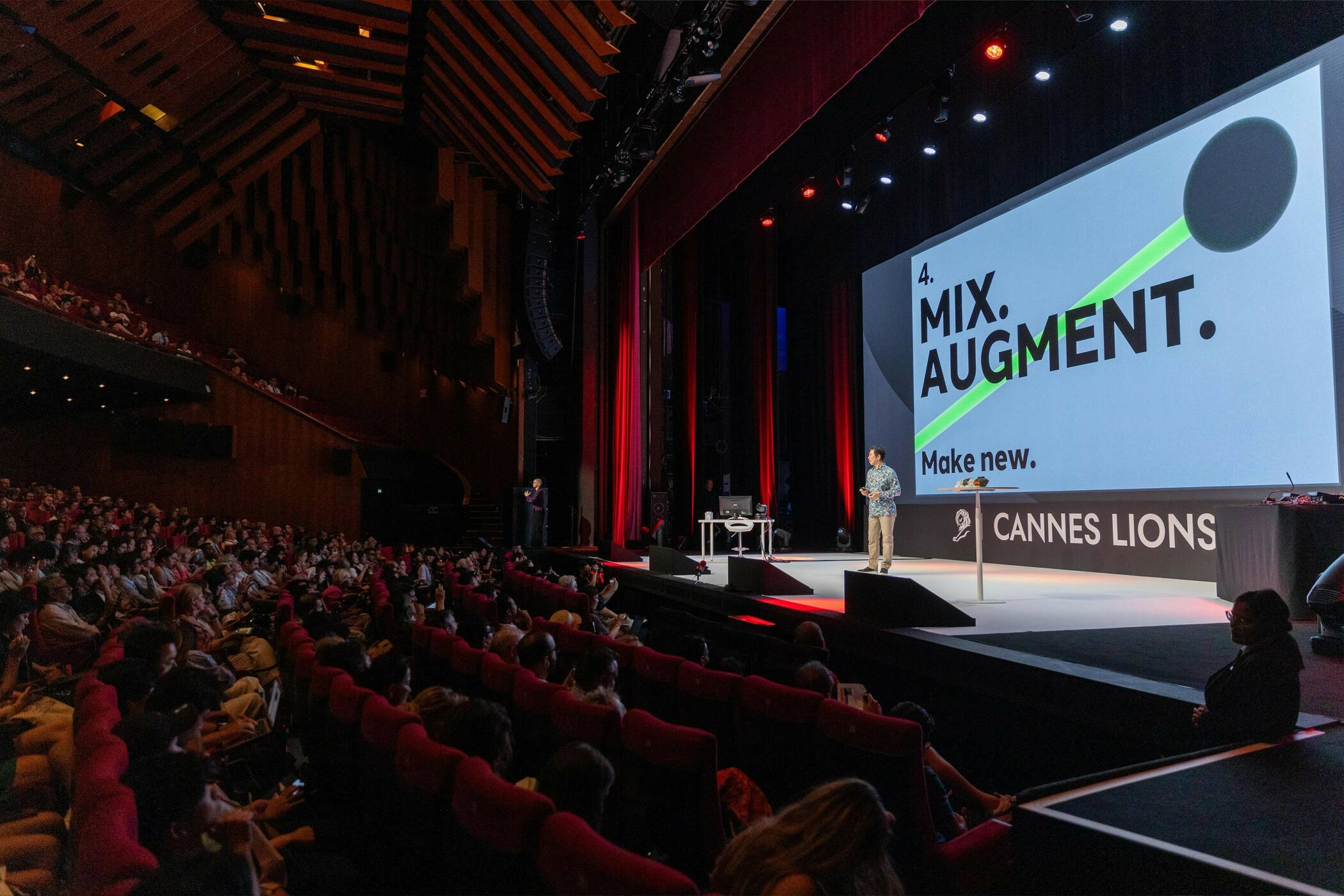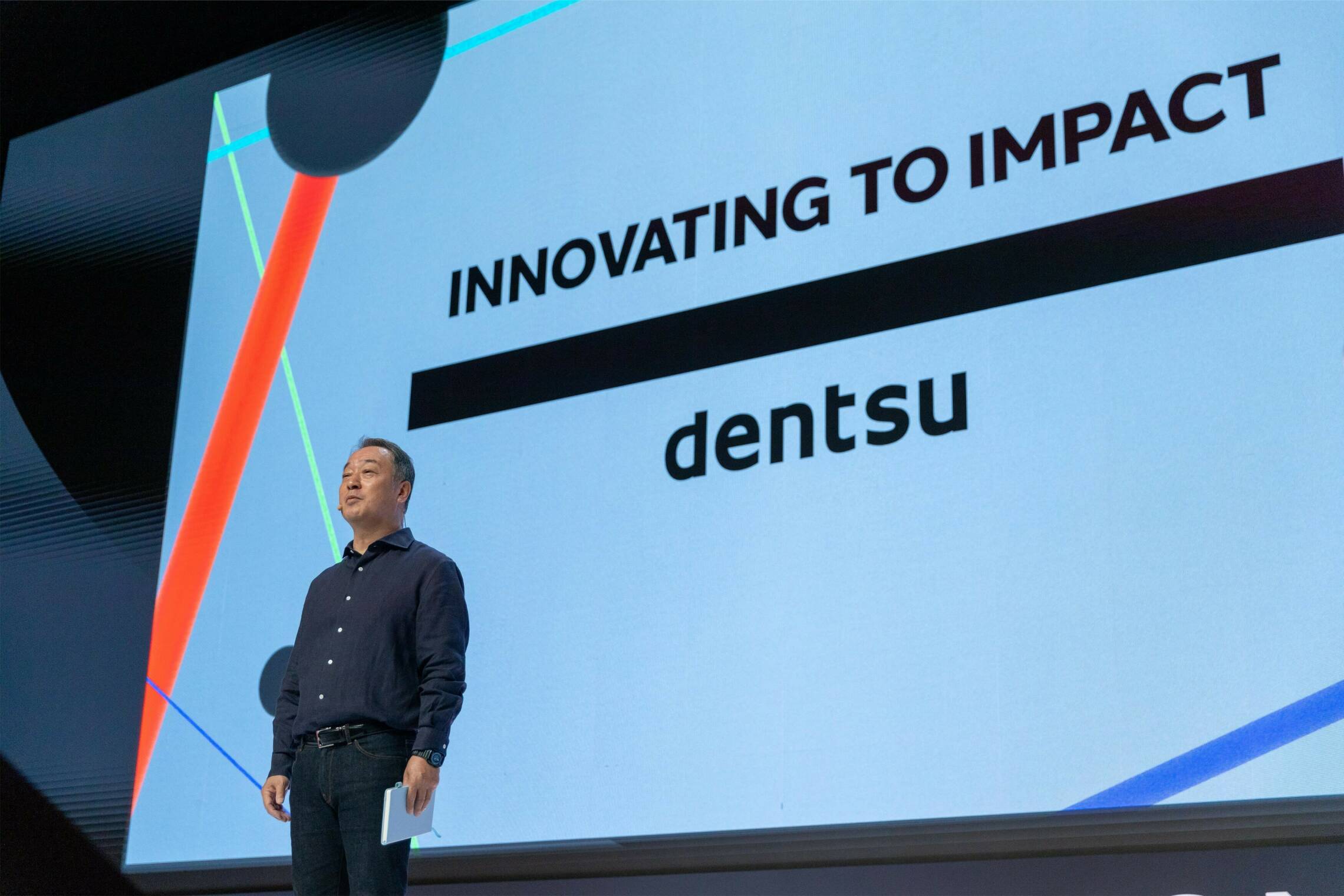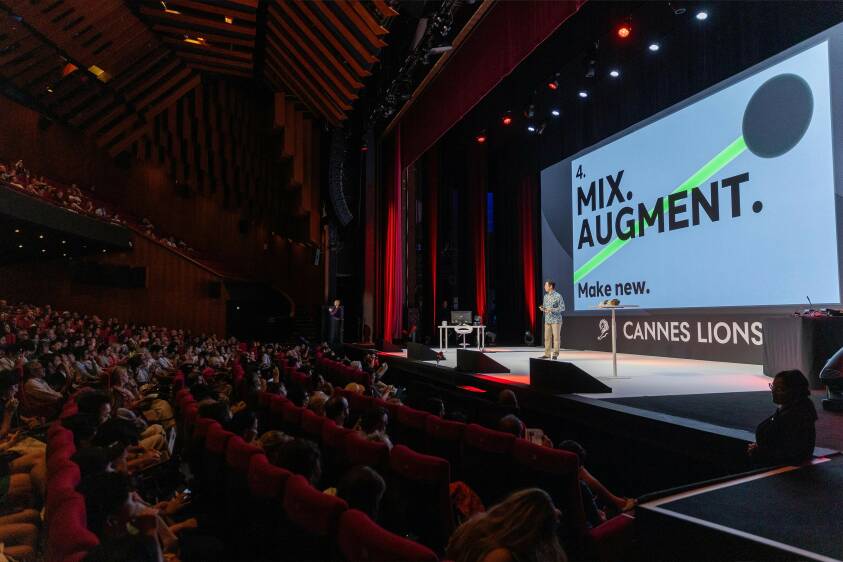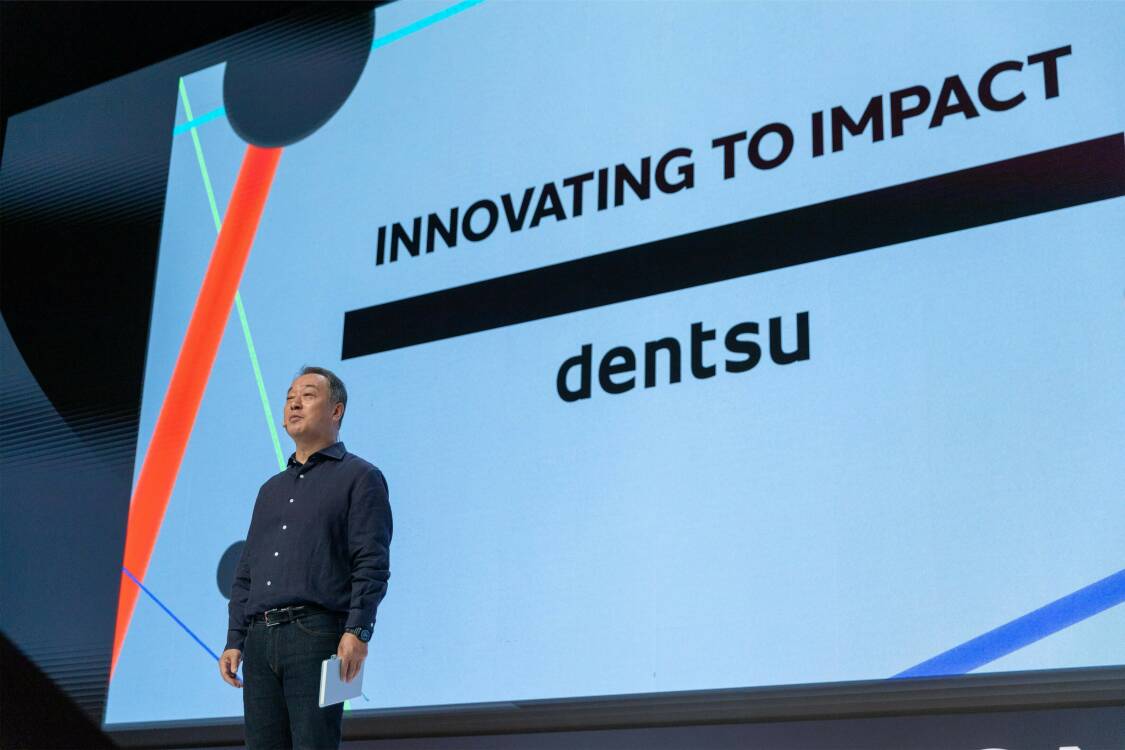
MONDAY 17TH
DAILY RECAP
Reflecting on the Industry’s Potential to Create Impact
The 71st Cannes Lions Festival of Creativity opened this Monday with a reflection on the Marketing and Advertising industry’s potential to create impact, not only for business growth but for society and, more broadly, humanity. In fact, the festival is running a thought leadership series named ‘Creative Impact Unpacked’ – presented by WARC. The first talk in this series, ‘How to Move the Needle on Sustainability’, featured Asahi, Kantar and Ad Net Zero for a reflection on greenwashing and a discussion on how to inspire trust and the adoption of sustainable behaviors among consumers. Preeti Srivastav, Group Head of Sustainability at Asahi, reflected on the organization’s experience replicating the due diligence processes they already had in place for financials in the arena of sustainable practices as a potential way forward for brands looking for a way to treat sustainable efforts with the rigor required to gain the credibility that consumers demand.
In the afternoon dentsu session, ‘Innovating to Impact: 120 Years of Innovation’, Hiroshi Igarashi, President and Global CEO reflected on the network’s legacy of innovation since its founding in 1901 and focused on the critical role that impact plays in ensuring that innovation reach its true potential. This potential is realized when the work ends up making a difference for people, society, and clients.
Yasuharu Sasaki, Global Chief Creative Officer at dentsu, discussed the five principles for innovating to impact: Respect the past to create the future; Have an outlier perspective; Discover new emotions and connections; Mix. Augment. Make new; Use tech to augment humanity. These principles were shown in action through a tour of some of the network’s industry-leading projects, like last year’s Grand Prix winner ‘Scrolling Therapy’.
At its purest, the notion of innovating to impact means aiming to create a world that is equal and accessible for all through tech and creativity. Dentsu Labs, the network’s innovation proposition – now expanding globally – and Japanese telecommunication company NTT have this notion at heart and developed ‘All Players Welcome’, a project that leverages electromyography - a technique for capturing electrical signals produced by realized, but also only intended muscle movements - and Web 3 technologies to enable people living with Amyotrophic Lateral Sclerosis (ALS) and muscular dystrophy to interact in virtual experiences. The solution was shown in action with a live demo featuring a Rocket Game competition between players (some in Cannes and some connected from Japan).
Health & Pharma: Impact for Humanity
On Monday evening Lions held the award show for Health and Pharma, possibly two of the categories in which creativity’s ability to impact humanity is most immediately tangible. Some of the work highlighting this included Buckaroo Footwear’s ‘Fit My Feet’, awarded a Gold Lions in Health & Wellness. The campaign featured an affordable DIY kit that allows people with foot malformations in India to customize the footwear company’s designs so they don’t have to walk barefoot. A Gold Lions winner in the Pharma category – KVI Brave Fund Inc.’s ‘Voice 2 Diabetes’ - leverages AI to detect type 2 diabetes by listening to the user’s voice for as little as 10 seconds. This has the power to save lives, especially in countries facing limited access to healthcare. On a lighter note, Dramamine’s ‘The Last Barf Bag’ addressed the notion of impact by reflecting ironically on the fulfillment of the anti-nausea medication’s value proposition by celebrating the now disappearing “cultural icon” they set on the verge of extinction - the barf bag - through a documentary and a museum installation.
Remixing the Old
As mentioned, Yasuharu Sasaki’s five principles for innovating to impact include respecting the past, as well as mixing and augmenting what already exists. Monday evening, the festival also awarded Lions in some of its ‘Classic’ categories - including Audio & Radio, Print & Publishing, and Outdoor – in which there was a trend of injecting new use cases, new capabilities, and new purposes in traditional media. Print Grand Prix winner Coca Cola’s ‘Recycle Me’ features the brand’s logo against a full-bleed red background, ‘squashed’ and ‘twisted’ to provide an immediate, simple reminder to consumers. Specsavers’ ‘The Misheard Version’ showcased Rick Astley singing misheard lyrics found online for his hit Never Gonna Give You Up, released in the UK as a secret mass hearing test, igniting a national conversation on hearing loss. This stunt ended up increasing Specsavers hearing test bookings by 1220% and was awarded the Grand Prix in the Audio & Radio category. Finally, Pedigree’s ‘Adoptable’ won a Grand Prix in Outdoors by turning every Pedigree ad into an ad for a shelter dog. The campaign leverages machine learning to turn pictures of shelter dogs into studio-quality photos that are inserted into digital display ads. Through a QR code, each ad sends audience members to a personalized landing page where they can learn more about the featured dog and potentially apply for adoption.





MONDAY 17th
DAILY RECAP

Reflecting on the Industry’s Potential to Create Impact
The 71st Cannes Lions Festival of Creativity opened this Monday with a reflection on the Marketing and Advertising industry’s potential to create impact, not only for business growth but for society and, more broadly, humanity. In fact, the festival is running a thought leadership series named ‘Creative Impact Unpacked’ – presented by WARC. The first talk in this series, ‘How to Move the Needle on Sustainability’, featured Asahi, Kantar and Ad Net Zero for a reflection on greenwashing and a discussion on how to inspire trust and the adoption of sustainable behaviors among consumers. Preeti Srivastav, Group Head of Sustainability at Asahi, reflected on the organization’s experience replicating the due diligence processes they already had in place for financials in the arena of sustainable practices as a potential way forward for brands looking for a way to treat sustainable efforts with the rigor required to gain the credibility that consumers demand.
In the afternoon dentsu session, ‘Innovating to Impact: 120 Years of Innovation’, Hiroshi Igarashi, President and Global CEO reflected on the network’s legacy of innovation since its founding in 1901 and focused on the critical role that impact plays in ensuring that innovation reach its true potential. This potential is realized when the work ends up making a difference for people, society, and clients.
Yasuharu Sasaki, Global Chief Creative Officer at dentsu, discussed the five principles for innovating to impact: Respect the past to create the future; Have an outlier perspective; Discover new emotions and connections; Mix. Augment. Make new; Use tech to augment humanity. These principles were shown in action through a tour of some of the network’s industry-leading projects, like last year’s Grand Prix winner ‘Scrolling Therapy’.

At its purest, the notion of innovating to impact means aiming to create a world that is equal and accessible for all through tech and creativity. Dentsu Labs, the network’s innovation proposition – now expanding globally – and Japanese telecommunication company NTT have this notion at heart and developed ‘All Players Welcome’, a project that leverages electromyography - a technique for capturing electrical signals produced by realized, but also only intended muscle movements - and Web 3 technologies to enable people living with Amyotrophic Lateral Sclerosis (ALS) and muscular dystrophy to interact in virtual experiences. The solution was shown in action with a live demo featuring a Rocket Game competition between players (some in Cannes and some connected from Japan).
Health & Pharma: Impact for Humanity
On Monday evening Lions held the award show for Health and Pharma, possibly two of the categories in which creativity’s ability to impact humanity is most immediately tangible. Some of the work highlighting this included Buckaroo Footwear’s ‘Fit My Feet’, awarded a Gold Lions in Health & Wellness. The campaign featured an affordable DIY kit that allows people with foot malformations in India to customize the footwear company’s designs so they don’t have to walk barefoot. A Gold Lions winner in the Pharma category – KVI Brave Fund Inc.’s ‘Voice 2 Diabetes’ - leverages AI to detect type 2 diabetes by listening to the user’s voice for as little as 10 seconds. This has the power to save lives, especially in countries facing limited access to healthcare. On a lighter note, Dramamine’s ‘The Last Barf Bag’ addressed the notion of impact by reflecting ironically on the fulfillment of the anti-nausea medication’s value proposition by celebrating the now disappearing “cultural icon” they set on the verge of extinction - the barf bag - through a documentary and a museum installation.
Remixing the Old
As mentioned, Yasuharu Sasaki’s five principles for innovating to impact include respecting the past, as well as mixing and augmenting what already exists. Monday evening, the festival also awarded Lions in some of its ‘Classic’ categories - including Audio & Radio, Print & Publishing, and Outdoor – in which there was a trend of injecting new use cases, new capabilities, and new purposes in traditional media. Print Grand Prix winner Coca Cola’s ‘Recycle Me’ features the brand’s logo against a full-bleed red background, ‘squashed’ and ‘twisted’ to provide an immediate, simple reminder to consumers. Specsavers’ ‘The Misheard Version’ showcased Rick Astley singing misheard lyrics found online for his hit Never Gonna Give You Up, released in the UK as a secret mass hearing test, igniting a national conversation on hearing loss. This stunt ended up increasing Specsavers hearing test bookings by 1220% and was awarded the Grand Prix in the Audio & Radio category. Finally, Pedigree’s ‘Adoptable’ won a Grand Prix in Outdoors by turning every Pedigree ad into an ad for a shelter dog. The campaign leverages machine learning to turn pictures of shelter dogs into studio-quality photos that are inserted into digital display ads. Through a QR code, each ad sends audience members to a personalized landing page where they can learn more about the featured dog and potentially apply for adoption.


